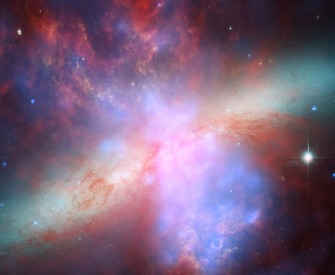To live outside the law, you must be honest.
—Bob Dylan, 1966Paper Moon
The United Nations shoots law into space.
The states parties to this convention,
Noting the achievements of states in the exploration and use of the moon and other celestial bodies,
Recognizing that the moon, as a natural satellite of the earth, has an important role to play in the exploration of outer space,
Determined to promote on the basis of equality the further development of cooperation among states in the exploration and use of the moon and other celestial bodies,
Desiring to prevent the moon from becoming an area of international conflict,
Bearing in mind the benefits that may be derived from the exploitation of the natural resources of the moon and other celestial bodies,
Recalling the Treaty on Principles Governing the Activities of States in the Exploration and Use of Outer Space, including the Moon and Other Celestial Bodies; the Agreement on the Rescue of Astronauts, the Return of Astronauts, and the Return of Objects Launched into Outer Space; the Convention on International Liability for Damage Caused by Space Objects; and the Convention on Registration of Objects Launched into Outer Space,
Have Agreed to the Following:
The provisions of this agreement relating to the moon shall also apply to other celestial bodies within the solar system, other than the earth, except insofar as specific legal norms enter into force with respect to any of these celestial bodies.
For the purposes of this agreement, reference to the moon shall include orbits around or other trajectories to or around it.
This agreement does not apply to extraterrestrial materials that reach the surface of the earth by natural means.
All activities on the moon, including its exploration and use, shall be carried out in accordance with international law, in particular the Charter of the United Nations.
The moon shall be used by all states parties exclusively for peaceful purposes.
Any threat or use of force or any other hostile act or threat of hostile act on the moon is prohibited. It is likewise prohibited to use the moon in order to commit any such act or to engage in any such threat in relation to the earth, the moon, spacecraft, the personnel of spacecraft, or man-made space objects.
States parties shall not place in orbit around or other trajectory to or around the moon objects carrying nuclear weapons or any other kinds of weapons of mass destruction or place or use such weapons on or in the moon.

Ash, by Christine Elfman, 2015. Pigment print, 40½ x 51 inches, edition of 3 plus 2 artist’s proofs. © Christine Elfman, courtesy of the artist and Gallery Wendi Norris, San Francisco.
The exploration and use of the moon shall be the province of all mankind and shall be carried out for the benefit and in the interests of all countries, irrespective of their degree of economic or scientific development. States parties shall be guided by the principle of cooperation and mutual assistance in all their activities concerning the exploration and use of the moon. In carrying out activities under this agreement, states parties shall promptly inform the secretary-general, as well as the public and the international scientific community, of any phenomena they discover in outer space, including the moon, which could endanger human life or health, as well as of any indication of organic life.
The moon is not subject to national appropriation by any claim of sovereignty, by means of use or occupation, or by any other means.
States parties have the right to exploration and use of the moon without discrimination of any kind, on the basis of equality and in accordance with international law and the provisions of this agreement.
About This Text
From the Agreement Governing the Activities of States on the Moon and Other Celestial Bodies. Commonly referred to as the Moon Treaty, this agreement, which draws substantially from international maritime law, was passed unanimously by the United Nations General Assembly in 1979. Though originally proposed by the Soviet Union, neither it nor the United States ultimately ratified the agreement; none of the seventeen nations currently a party to the treaty, which went into effect in 1984, has launched its own manned spacecraft.


